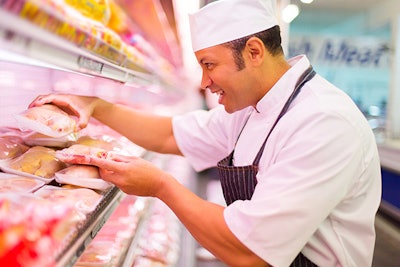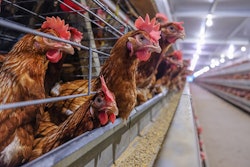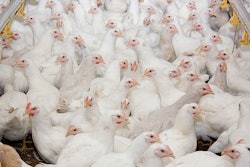
The COVID-19 pandemic has drastically changed how consumers shop, leading to increased sales of fresh chicken and turkey in retail stores and a growing use of contactless delivery options. Will these changes influence future buying habits?
“If this goes on for quite some time. It could start to change the way you think about physical interactions with retail stores and people,” Neil Stern, Senior Partner at McMillianDoolittle, explained. “In that scenario, it wildly accelerates interested in extreme convenience, including delivery and subscription services, as we think of new ways to get products to people.”
A shift to e-commerce
As an example, Stern mentioned the new Amazon Go Grocery, that allows customers to purchase items using an app on their phone without any human interaction. Other automated and technological options include Walmart’s grocery pickup, Instacart’s delivery service or the new Perdue Farms direct-to-consumer website.
Consumer behaviors in reaction to the COVID-19 pandemic encompass six “thresholds,” analyst platform Nielsen says. During the sixth threshold, which takes place once COVID-19 quarantines are lifted and life returns to normal, Nielsen predicts that there will be “permanent shifts” in “the use of e-commerce.”
“The outbreak has already caused an array of changes in shopping behavior and we’re focused on understanding the ones that will come next, how long they’ll last — and whether any will stay with us after the outbreak is behind us,” Nielsen’s Global Intelligence leader Scott McKenzie said in a statement.
A retail/restaurant hybrid?
“Alternatively, this could be a wonderful reminder that we all enjoy interaction, making experience even more important,” Stern added. Before the pandemic began, grocery chains such as Whole Foods and Wegmans gave consumers a retail/restaurant hybrid experience where they could purchase meals to eat and shop for various cuts of meat in the same location.
Frisch’s Big Boy, a quick service restaurant chain located throughout Kentucky, Ohio and Indiana, has transitioned to Big Boy’s Markets during the COVID-19 pandemic, selling perishables such as milk, fruits, vegetables and homemade tuna salad as well as shelf-stable items like bread, sugar, bottled water and toilet paper through drive-thru windows.
Selling groceries allows Frisch’s Big Boy to continue to employ more team members and builds goodwill towards the community.
View our continuing coverage of the coronavirus/COVID-19 pandemic.
Like what you just read? Sign up now for free to receive the Poultry Future Newsletter.


















